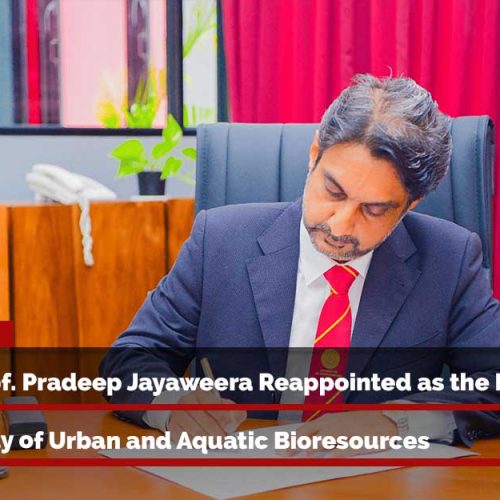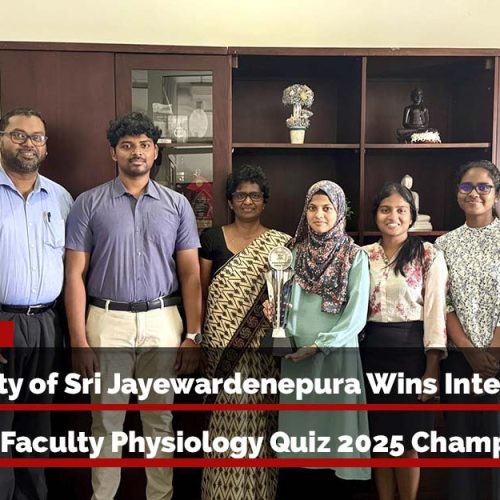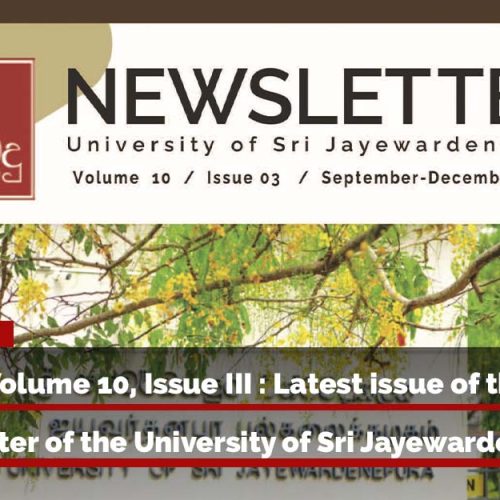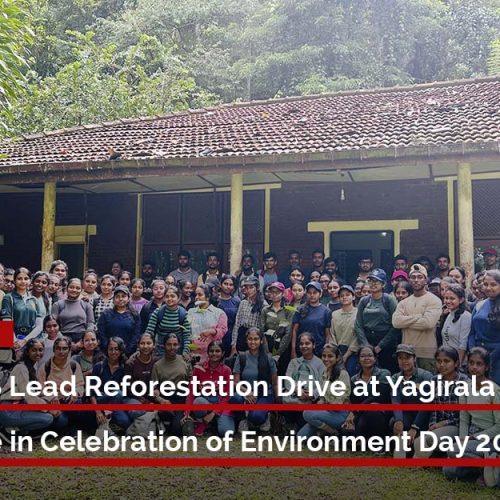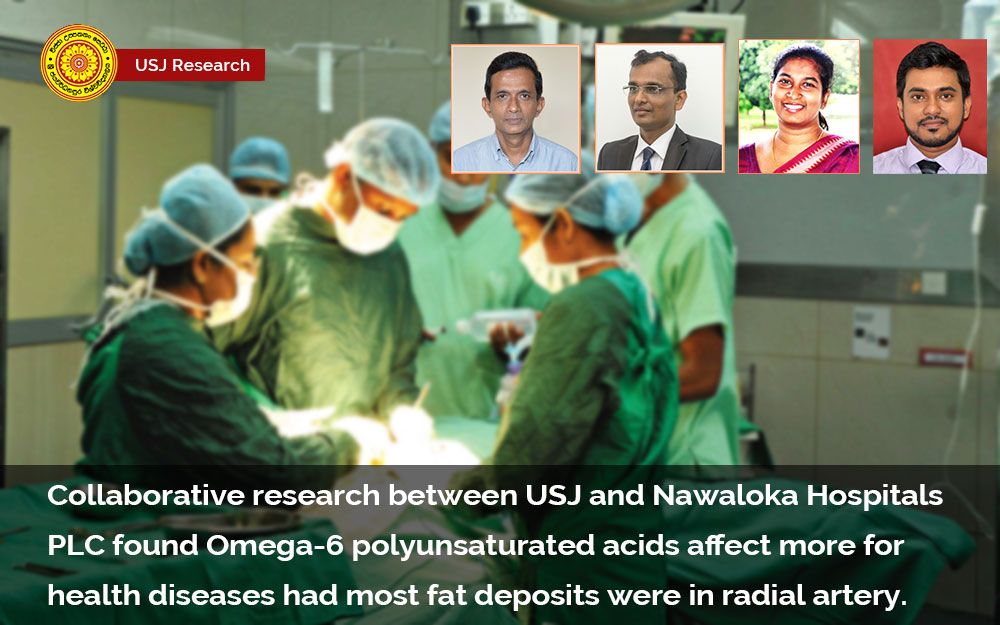
Fatty acid profile of vessels that are implanted during coronary artery bypass graft (also known as “bypass surgery in heart”) can impact long term stability after the implant. A comparative study on Fatty acid profile in selected vessels of coronary artery bypass graft conducted by researchers attached to Faculty of Allied Health Sciences of the University of Sri Jayewardenepura in collaboration with Nawaloka Hospital Research and Education foundation has found redevelopment of atherosclerosis is less with left internal mammary artery, when compared to saphenous vein, and radial artery based on those vessel’s fatty acid composition.
“This was the first-time fatty acid profile of the radial artery compared with the fatty acid profiles of left internal mammary artery, saphenous vein altogether” said Dr. Dakshika Wanniarachchi of the research team. A small biopsy segment samples of the saphenous vein, radial artery, and left internal mammary artery of 27 patients who were elective for their “bypass” was taken during surgery in Nawaloka Hospitals. Samples analyzed using Gas Chromatography-Mass Spectroscopy for the fatty acid profile of the tissue samples. University of Sri Jayewardenepura researchers E M S Bandara of Department of Medical Laboratory Science, Faculty of Allied Health Sciences, D I U Edirisinghe and D D C de S Wanniarachchi of Instrument Center, Faculty of Appled Sicneces, H Peiris and P P R Perera of Department of Biochemistry, Faculty of Medical Sciences with researchers A G Jayakrishan, H D Waikar, S K Sharma, V Abeysuriya, L G Chandrasena of Nawaloka Hospital Research and education Foundation of Nawaloka Hospitals PLC conducted this research.
“Fatty acid profiles in atherosclerotic tissues are important in coronary artery disease. Only limited studies have been conducted on the analysis of the vessel wall fatty acid composition. Therefore, this study aimed to compare the fatty acid profile of common vessels used in coronary artery bypass graft” Dr. Dakshika added. Team published their findings on January 21, 2022, in PLOS ONE Journal and after peer reviewed, publication is now available to the public through its website.
Fatty acid deposited in the vessels have significant impact on the durability of the expected impact from the surgery. To have the long-lasting effect from a bypass surgery, it is important to prevent redevelopment of atherosclerotic plaque in the implanted vessel. Therefore, transplanting the better vessel is important. This study compared the fatty acid composition of three vessels commonly used implant in bypass surgery. Researchers found higher percentage of saturated fatty acid in radial artery when compared to other vessels-left internal mammary artery and saphenous vein. Higher percentage of unsaturated fatty acids which are Omega-3 and Omega 6 were found in left internal mammary artery and saphenous vein. When compared the structure and function of Omega 3 and Omega-6 unsaturated fatty acids, the presence of Omega−3 fatty acids is beneficial in inflammatory-related diseases like atherosclerosis. Previous studies reported Omega-3 poly unsaturated fatty acids improve the vascular structure and function by reducing arterial stiffness and improved endothelial-dependent dealation. On the other hand, Omega-6 poly unsaturated fatty acids promote prothrombotic and proinflammatory makers. And leading to inflammation, thrombosis, atherosclerotic properties and promoting the development of inflammatory disorders and excessive cell proliferation. Therefore, higher levels of Omega-6 fatty acids in vessels could be harmful to health. The research team stated, “it is worth considering the role of Omega-3 and Omega-6 fatty acid levels in the redevelopment of atherosclerotic plaque”. Under this consideration, the researchers used the Omega-3 and Omega-6 ratio to compare the sample vessels. In the present study, the percentage of the pro-inflammatory, arachidonic acid levels was significantly low in left internal mammary artery, compared to saphenous vein and radial artery suggesting a possible higher success rate in left internal mammary artery grafts.
In addition to that, study highlight the Omega-3 poly unsaturated fatty acid distribution of left internal mammary artery is more favorable to the long-lasting success of bypass surgery when compared to conducting same for other two veins for coronary artery bypass graft. Afterall it is specialists to decide the priority of the vessel under different conditions, but most important thing for us is we can find this healthy omega-3 fatty acid in fish oil, and we can make our heart healthy before going to a bypass surgery. If we try to stay little healthier than now, we may be able to stay without having a bypass surgery at all.
Read the full article: A comparative study on fatty acid profile in selected vessels of coronary artery bypass graft (CABG)

